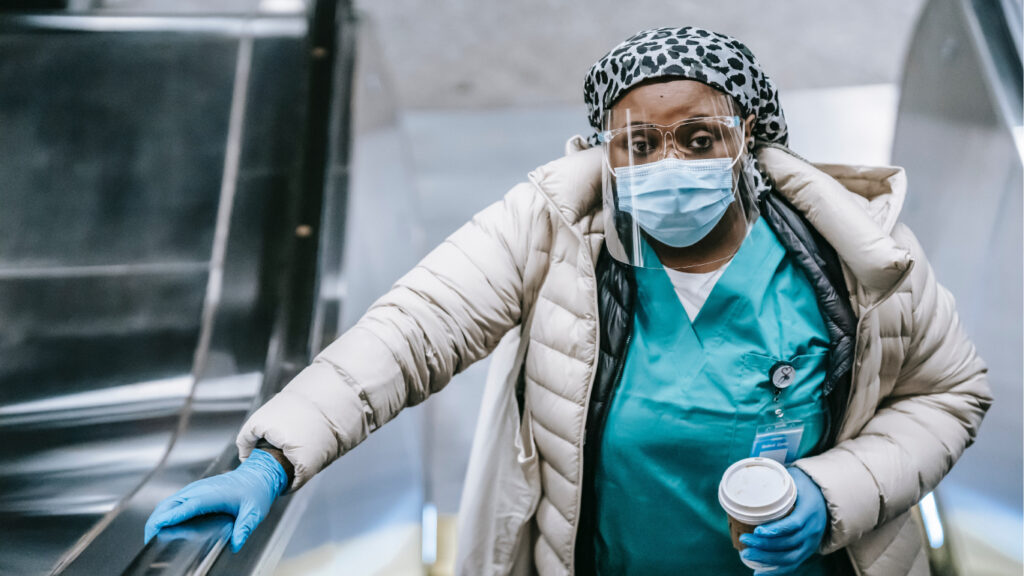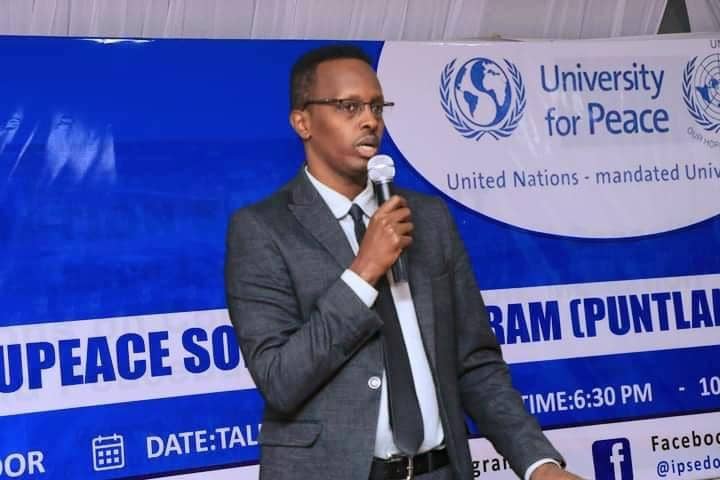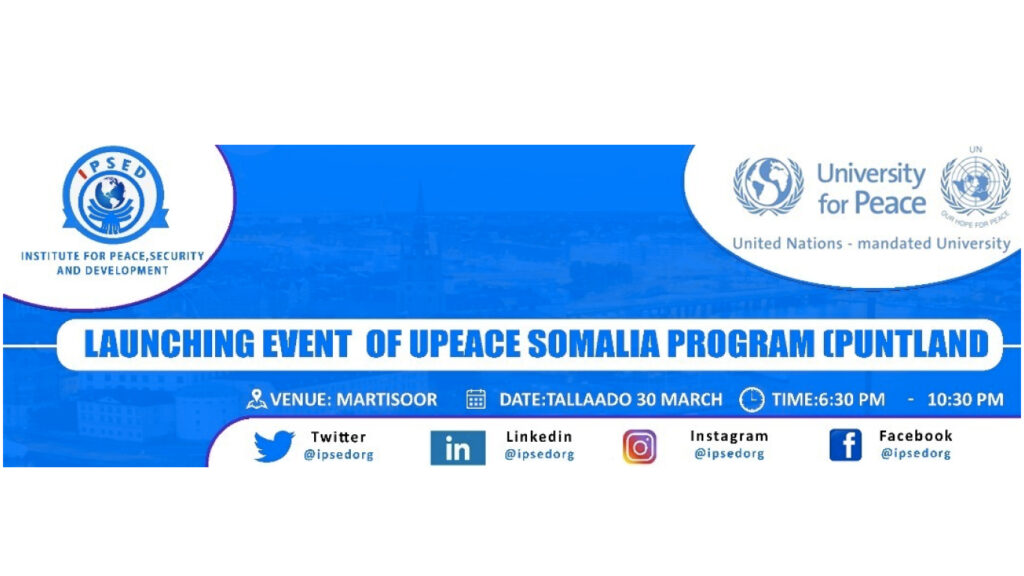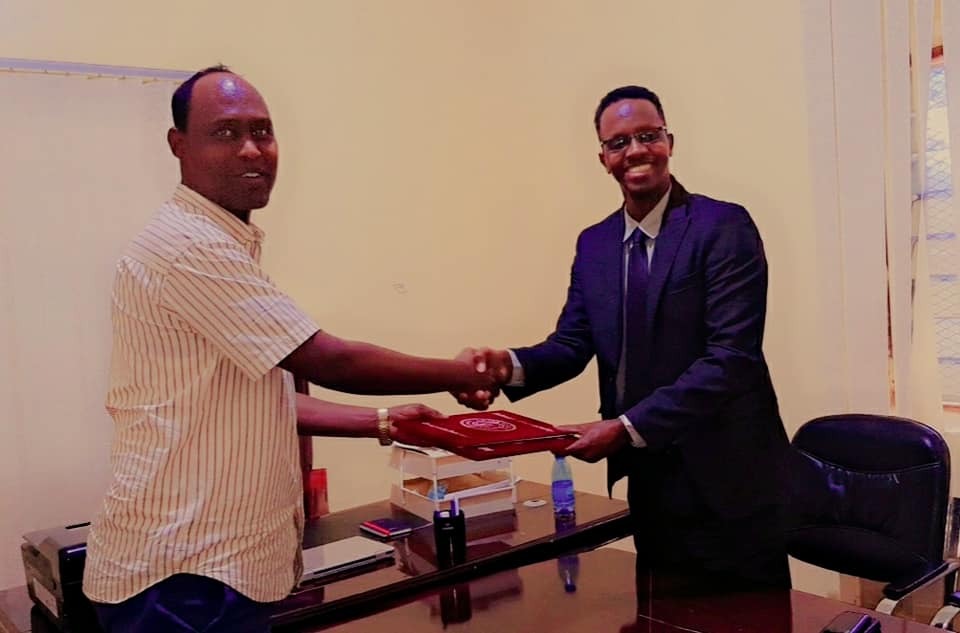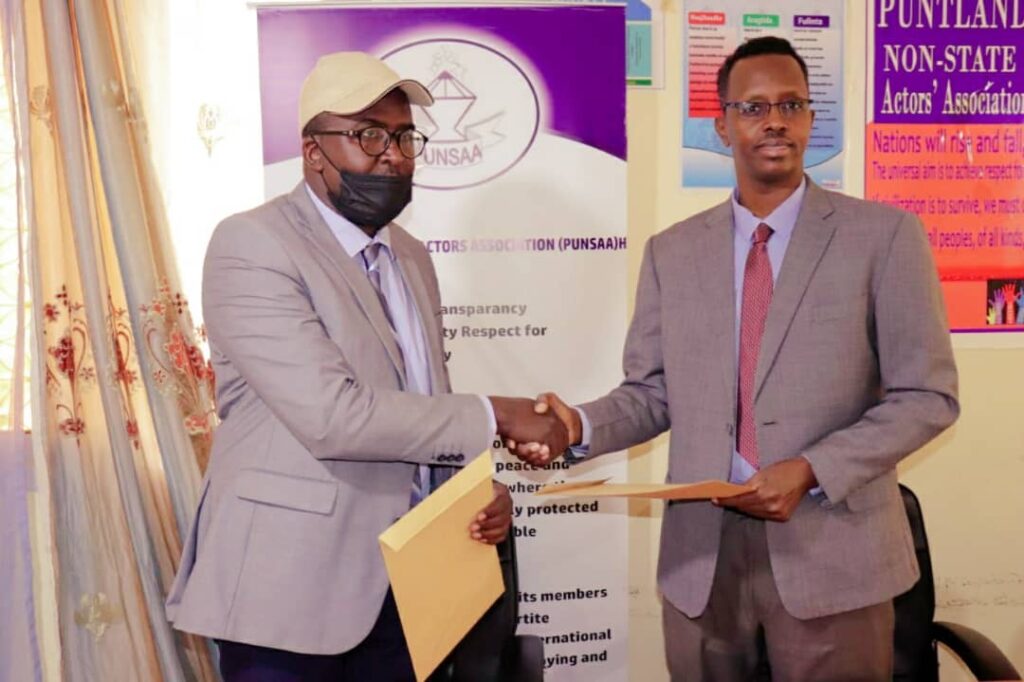The IPSED view on Somalia’s Covid-19 plan: fine sentiment, but lacks details
Dr Ahmed Herzi
Email: Info@ipsed.org
Date: 03/April/2020
Somalia has finally declared war on Covid-19. Health ministers noted that there is no alternative left for them no alternative but to fight. This was never a war of choice. The virus is no ordinary enemy. It knows no borders. Having found a human host somewhere in the Chinese city of Wuhan a few months ago, the virus has caused more than 190,000 diagnosed cases of Covid-19, from South America to New Zealand. It was clear that if Somalia could not slow down the contagion, the disease would overload hospitals and kill hundreds in a few weeks, as it has done in northern Italy. The policy to combat a virus must be guided by science, but it is ultimately a political decision. On 15 March, the government banned passengers who had been to China, Iran, Italy, or South Korea in the past 14 days from entering Somalia.
At that time the government had quarantined four people. On 17 March, the government announced that schools and universities would be closed for 15 days effective from 19 March and that large gatherings were prohibited. The Somali Aviation Ministry ordered a suspension of all international flights for 15 days starting from Wednesday, 18 March, with the possibility of exceptions for humanitarian flights. The suspension affected khat imports from Kenya, leading to economic difficulties for khat sellers in Somalia and growers in Kenya. Also on 18 March, Prime Minister Hassan Ali Khaire announced $5 million had been allocated to address the pandemic.
Moreover, since the outbreak of coronavirus (Covid-19) continues to spread in an unpredictable manner it presents a growing risk to all stakeholders involved in food assistance, particularly in the area of food distribution. The latest government policy is to disallow NGOs, with the exception of a few approved ones, to directly distribute aid to vulnerable groups. It is strongly proposed that an interim protocol on partnership between health personnel, federal and local governments and Non-Governmental Organisations (NGOs) be proposed to ensure that aid distribution is maintained.
The implementation of the movement control order issued by the Federal Government of Somalia and the subsequent two weeks extension until middle of April 2020 was much needed to ensure that the spread of the virus is curtailed and further health risks avoided. However, this would mean Somali people would be house bound for almost one month in total which would be financially challenging for many, especially daily income earners, bottom 30, undocumented the vulnerable groups. Conditions will worsen if the movement control is further extended, which is a possibility given that the number of positive cases continues to rise.
Under normal circumstances, CBOs/NGOs play a vital role in assisting needy groups meet their daily needs from providing food through soup kitchens and food banks to informal through microfinancing to help pay bills, rent and providing other basic services. This is on top of on-going federal and state government aid programmes. This has continued and even ramped up during lockdown, where numerous CBOs self-organised themselves organically and have played an essential role in facilitating donations and other forms of contributions to vulnerable communities.
There must be online platforms to connect CBOs/ NGOs with the wider public keen to help, encapsulates this spirit of Somali people helping each other, especially the vulnerable, during a time of great need.
Will UN Support for Covid 19 in Somalia be effective?
According to the UN Special Representative for Somalia James Swan, the UN family in Somalia stands shoulder-to-shoulder with the people of Somalia during this testing time. He assured that UN would continue its support in tackling the immediate health and long-term socio-economic impact of the coronavirus, paying particular attention “to the most vulnerable”, including internally displaced people, the infirm and the elderly.
“The United Nations appeals to everyone in Somalia to come together in this fight against the pandemic”, said Mr. Swan, echoing the Secretary-General’s call for “an immediate global ceasefire to put aside violence, mistrust, hostilities and animosity, and to focus on battling the virus, not each other”.
“So that all resources and support can be channeled to fight the COVID-19 pandemic”, he called, on behalf of the UN, “for a cessation of acts of violence and terrorism”.
The role of Federal Government of Somalia and member states in fighting of COVID-19
According to the Special Representative for Somalia stated that, in order to reinforce federal and state level efforts to contain and curb the virus, the UN has established system-wide operating, medical and support procedures. He added that “Our robust support to Somalia continues,” said Deputy Special Representative, Resident and Humanitarian Coordinator Adam Abdelmoula. “All agencies remain engaged and continue to deliver critical assistance to those most in need.”
The World Health Organization (WHO) is maintaining its scaled-up operational readiness and response, including by supporting a testing mechanism and isolating suspected cases to prevent onward transmission.
WHO is heavily engaged with the Somali health authorities for case findings, contact tracing, testing, isolation and containment activities with the intention of virus suppression and delaying patient surge”, said WHO Country Representative Mamunur Rahman Malik. “We will continue to work as One UN and keeps the country safe showing our solidarity, unity and partnership with the government”.
For its part, the UN Support Office in Somalia (UNSOS) continues to carry out its mandate to provide logistics support to the African Union Mission in Somalia (AMISOM), as well as elements of the Somalia security forces engaged in joint security operations with AMISOM.
Within the UN COVID-19 Response Task Force, UNSOS and AMISOM were able to assist the Somali Government in responding to the first suspected COVID-19 cases.
And other UN agencies and programmes are supporting the COVID-19 response plan by providing technical expertise and logistics, training health workers, providing equipment for isolation centres and scaling up hygiene responses. Meanwhile, in anticipation of a deteriorating situation, the World Food Programme (WFP) plans to distribute two months’ worth of food rations.
The Role of Somali NGOs/CBOs in fighting with COVID-19
It was a surprise when, the government has extended the lockdown due to the need for more stringent social distancing. In this case the Federal Government and the member states need to announce for all CBOs to cease all aid distribution. Instead, the military would take over the provision of food and shelter in coordination with the National Welfare Departments if they exist.
Local Non Governmental Organizations (LNGOs) are mostly community-centred, are well aware of their target groups, and have built rapport and trust with these communities over the years. Studies have consistently shown that in times of crisis, strengthening local community resources ensures resilience for both short and long term timelines.
To this effect, The Federal government and member states should not be clamping down on existing, trusted, experienced and communal resources but instead strengthen it. Examples of other governments working alongside the NGO community during this global crisis already exist. For example, the New Zealand government recently allocated $27 million to ensure NGOs and community groups keep providing for the most vulnerable during their four week Covid-19 lockdown.
The French government created a website to recruit volunteers for emergency food aid, childcare for healthcare personnel, checking in on isolated and fragile people, and neighbourhood solidarity. The Open Government Partnership (OGP) platform has a growing list of more than 90 examples in more than 20 countries of governments around the world working alongside civil society organisations to produce platforms and working jointly on disaster response strategies. The Federal government and member states can surely learn from these case studies and adopt a more open, transparent working relationship for the greater good.
In the principle of do no harm, it is hence proposed that the government work together in collaboration with NGOs to continue providing services within local community while still abiding lockdown rules the social distancing strategy as directed by the Ministry of Health and the World Health Organisation.
In tackling future national security circumstances, it is strongly recommended that the membership of the National Security Council Acts be amended to include representation of civil society. The terms and conditions of this membership can be negotiated and clearly spelt out, where for instance, one NGO representative would be essential in tackling community issues and in the case of public health crises such as this, one public health representative would also be necessary.
However, in the interest of urgency as we collectively fight the COVID 19 pandemic at present, an interim protocol for collaboration between government and NGOs should be established immediately to ensure that no one falls through the cracks. We recommend that this be adopted by the government immediately. The interim protocol should be based on the following principles:
Security
It is important to ensure equal access to impartial assistance according to need and without discrimination. All vulnerable communities should be given equal social and economic security to ensure they have the resilience to survive throughout the lockdown period. Beneficiaries who are reluctant come forward because of existing marginalisation (such as migrant workers and refugees in the country) should be identified.
Dissemination of information
Information should be shared with communities which are in line with national guidelines, including advice for at-risk groups (elderly and persons with pre-existing health conditions).
Awareness rising at Community level
Community engagement and clear communications and feedback mechanism will be crucial to reduce transmission, contain the spread of the disease and reduce fear, misinformation, confusion and tension. Existing community mechanisms as well as distribution activities should be leverage.
Distribution and wealth inclusion
Adjustments may include increasing in the number of distribution sites/food outlets to avoid large gatherings, staggering of distribution cycles (e.g. providing rations that will cover a longer duration) and loading procedures to reduce frequency of gatherings, changes in packaging/kitting procedures to reduce time on site and contact. Spaces must be clearly organised so as to avoid crowding, and hygiene and social distancing measures must be practised.
Open collaboration between government and NGOs
Government should encourage and not discourage NGOs willing to contribute their time and resources in helping vulnerable communities during times of crises. A spirit of open collaboration should be adopted by government, and a standard set of health guidelines and standard operating procedure (SOP) should be issued to all NGOs intending to engage in aid distribution. Selecting only a dozen or so organisations without the necessary transparent selection procedures creates distrust .Allowing society to self-organise organically is the only way to ensure the most vulnerable groups will be given protection during this time.
We understand and respect that the government has good intentions of avoiding further risk of virus spread, and reacted in a way to mitigate potential risks by restricting aid distribution to only several NGOs. However, government resources are not infinite, financial or otherwise. There is already anecdotal evidence of government ministries and agencies reaching out to the NGOs for assistance.
More importantly, it is impossible for the government to be aware of all vulnerable communities that simultaneously exist in all corners of the country. NGOs have worked for many years to build a deep understanding and trust within these communities, and have an acute knowledge of how they function and what their needs are.
Balancing the need to contain the COVID 19 virus while ensuring our vulnerable communities are well-protected is challenging, but the government can emerge with a systematic response to working closely with NGOs. Since the Lockdown started, thousands of dollars have already poured in from everyday Somali community members to NGOs, who in turn have assisted in providing food and other forms of aid to vulnerable communities.
Government must begin to realise that it must work hand-in-hand with NGOs to resolve national crises, including health pandemics such as what we currently face. Moving forward, a systematic approach where resources are pooled and willing collaborators identified for a positive working relationship is the best option in tackling the social and economic consequences of Covid-19. Approve an interim protocol, while future long-term measures must also be considered.

